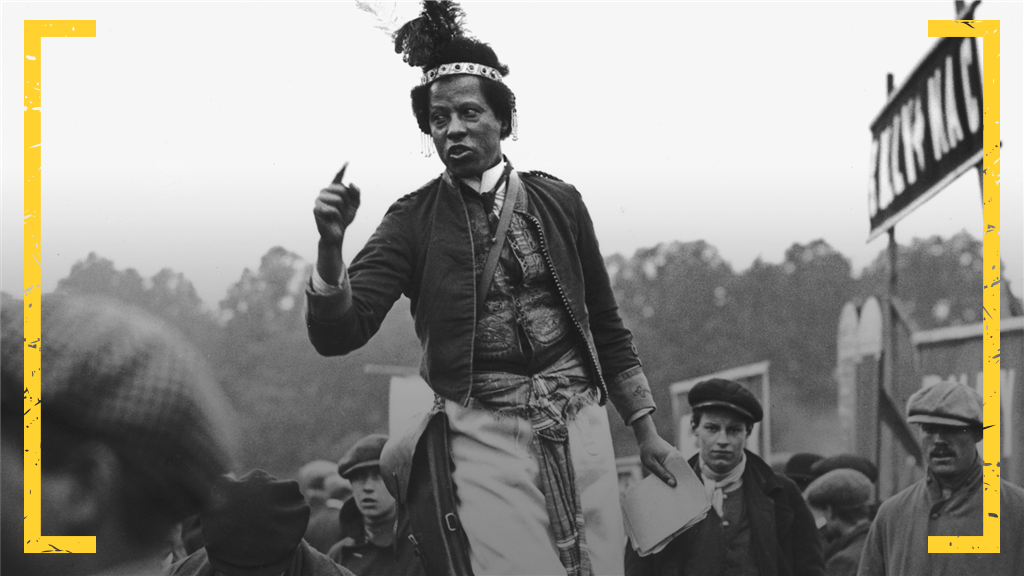The 'princess' who broke the beauty show colour bar
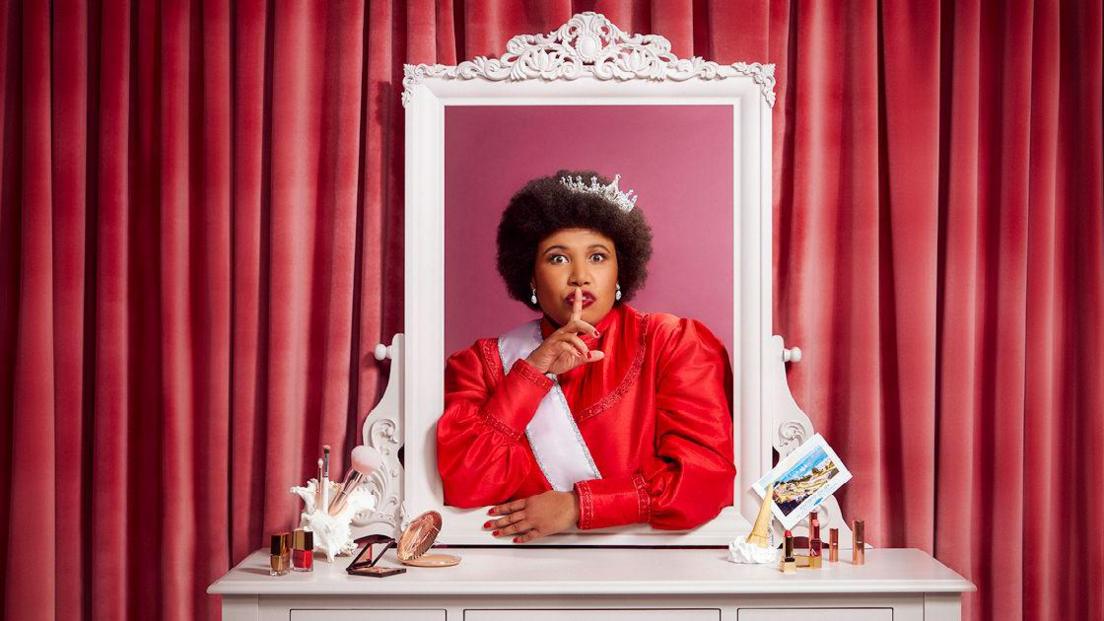
Playwright Anne Odeke is also due to star in Princess Essex at recreation of Shakespeare's Globe Theatre in London
- Published
The story of a woman who broke down racial barriers and became the first black person to enter a beauty pageant in the UK is due to come to Shakespeare's Globe Theatre, external replica.
Princess Dinubolu, like many minorities at the time, was restricted by several "colour bars" preventing her from doing certain things, including entering a beauty pageant.
Despite receiving a blunt telegram that read "local prejudice, do not enter," in 1908 she signed up for the contest anyway, in Southend-on-Sea.
Anne Odeke is making her playwriting debut with "Princess Essex", and she is taking on the starring role of what she called a "brave woman".
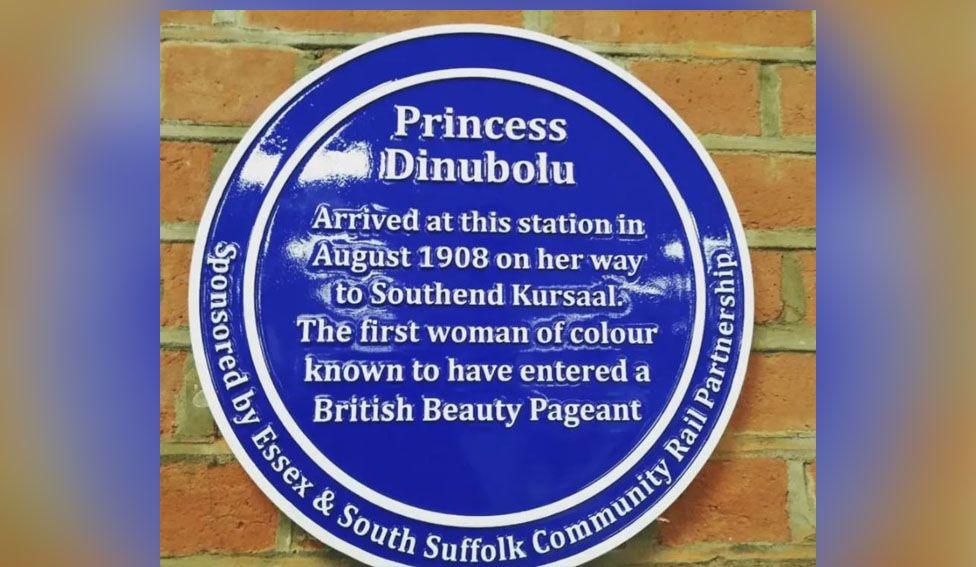
Little is known of the woman, said to be from Senegal, other than newspaper reports from 1908, which had no pictures
In 1908, a young woman arrived at Southend railway station with a third-class ticket and her heart set on winning the town's beauty contest.
But her entry caused a worldwide scandal with headlines reaching New Zealand because of the colour of her skin.
On the day of the competition, about 3,000 spectators were at the Kursaal to watch history be made.
Ms Odeke said: "A bit of a twist is that research suggests that there never was a Princess Dinubolu of Senegal, so one theory is that she was actually a brown Essex woman who pretended to be a African princess to enter the beauty pageant."
The "princess" thought that by acting like royalty, people would be "more accepting of her colour of skin if she was a higher class," Ms Odeke explained.
"I say this as someone who is Essex born and bred; what an absolute joy that the story takes place in our home county."
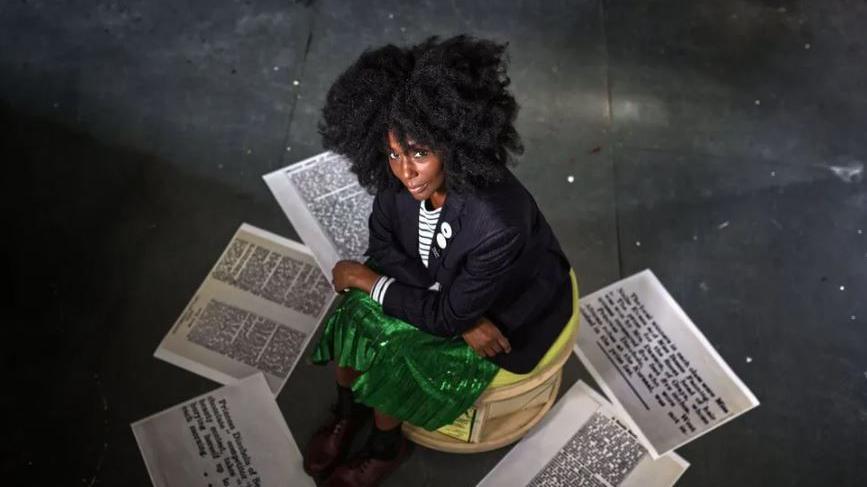
Artist Elsa James with news cuttings about Princess Dinubolu's entry into the Southend beauty competition
Ms Odeke said a lot of beauty pageants at the time had "colour bars" which meant non-white people were banned from entering certain events.
"The Kursaal didn't have a colour bar, perhaps because they didn't think anything like this could ever arise," she said.
"It meant that she could enter so, very cleverly, that is what she did."
Before the competition, the manager of the Kursaal amusement park was sitting in his office when the telegram arrived from Great Yarmouth.
It read: "Was not allowed to compete beauty show here on account of colour. Have you any rule barring me? Reply Post Office, Princess Dinubolu, of Senegal."
"Don't enter, local prejudice" came the reply, but she ignored that advice.
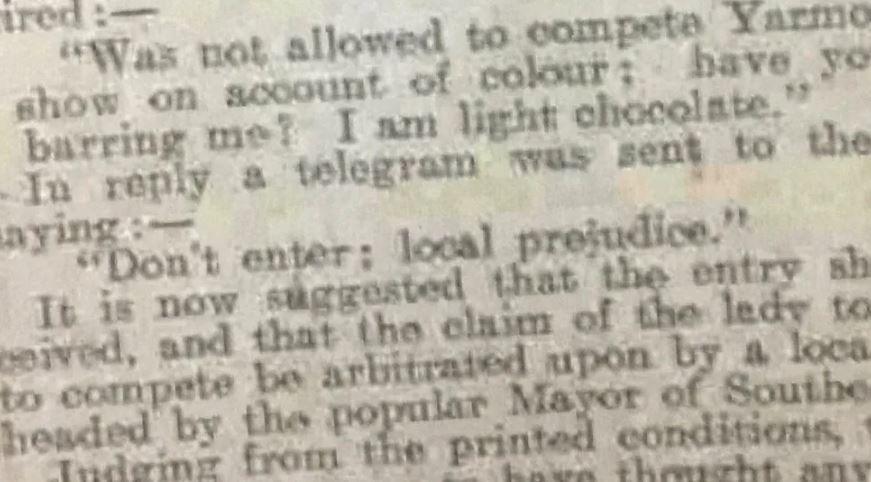
Princess Dinubolu was advised not to enter because of 'local prejudice', according to the Sheffield Daily Telegraph
Ms Odeke said: "It says a lot about her character, it goes without saying that she is a very brave woman.
"It also suggests that she has a great sense of humour, because there are so many amazing quotes that she gives us."
During the pageant a journalist asked her about her morning beauty routine.
The princess replied: "I bury myself up to my neck in sand."
Ms Odeke has featured in several Shakespeare plays at The Globe over her career but she said she was looking forward to make her debut as a playwright.
"It is exciting and a real privilege to be able to share an Essex story that not a lot of people in Essex know about," she said.
The show on the south bank of the Thames in central London runs 13 September- 26 October.
Get in touch
Do you have a story suggestion for Essex?
Princess Essex and the Kursaal pageant
- Attribution
Follow Essex news on BBC Sounds, Facebook, external, Instagram, external and X, external.
Related topics
More stories of interest
- Published22 July 2019
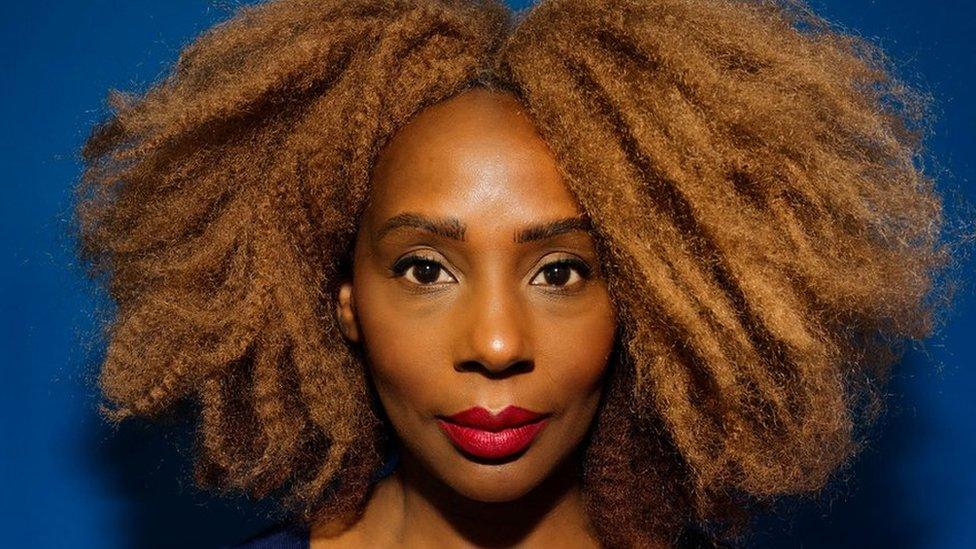
- Published30 January 2022
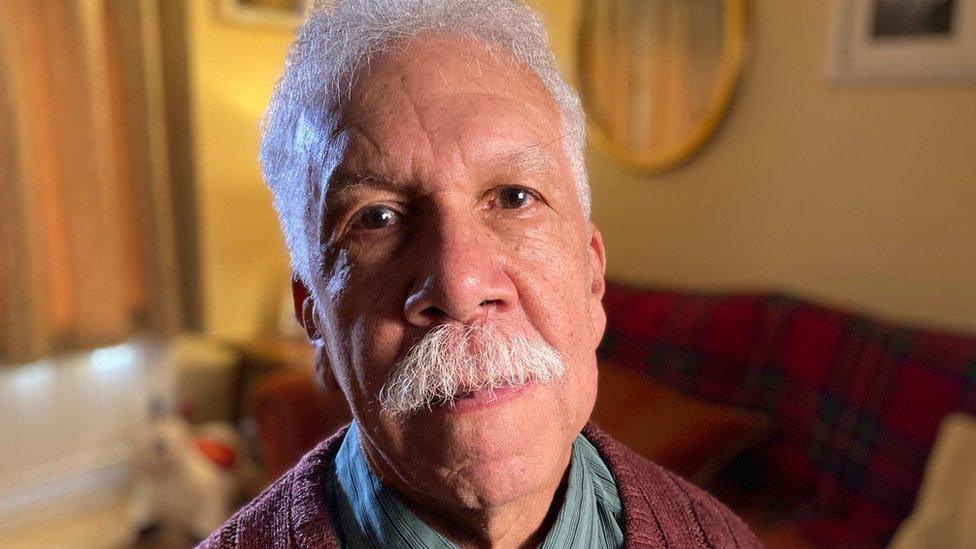
- Attribution
- Published30 October 2020
